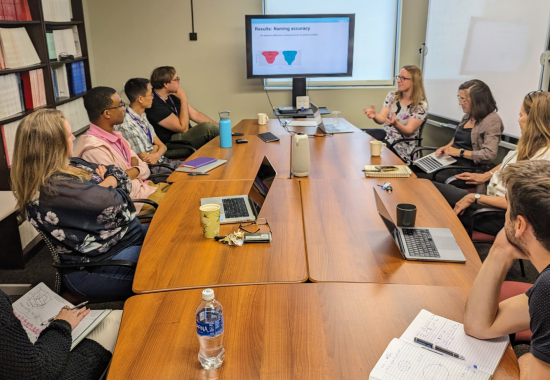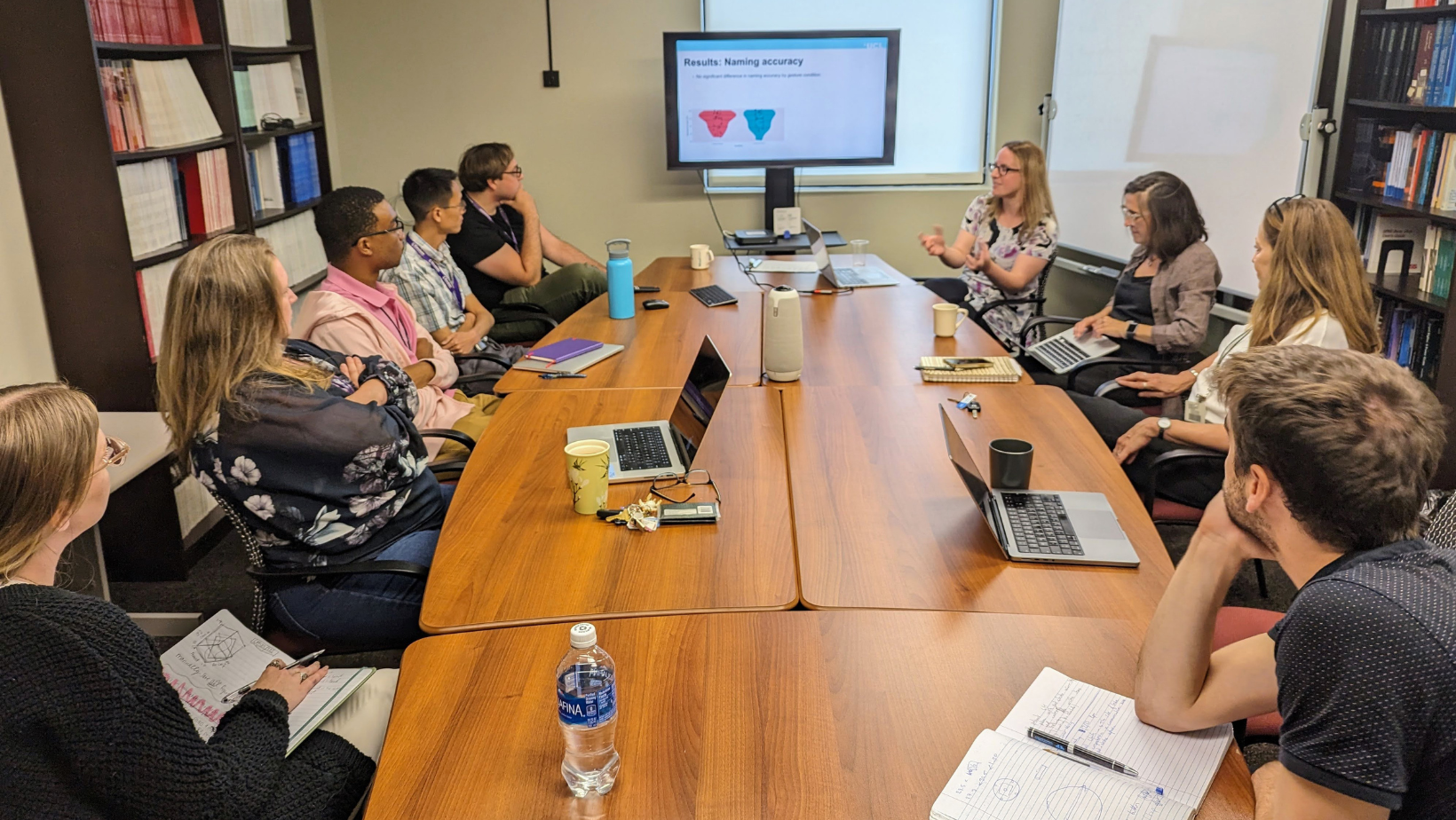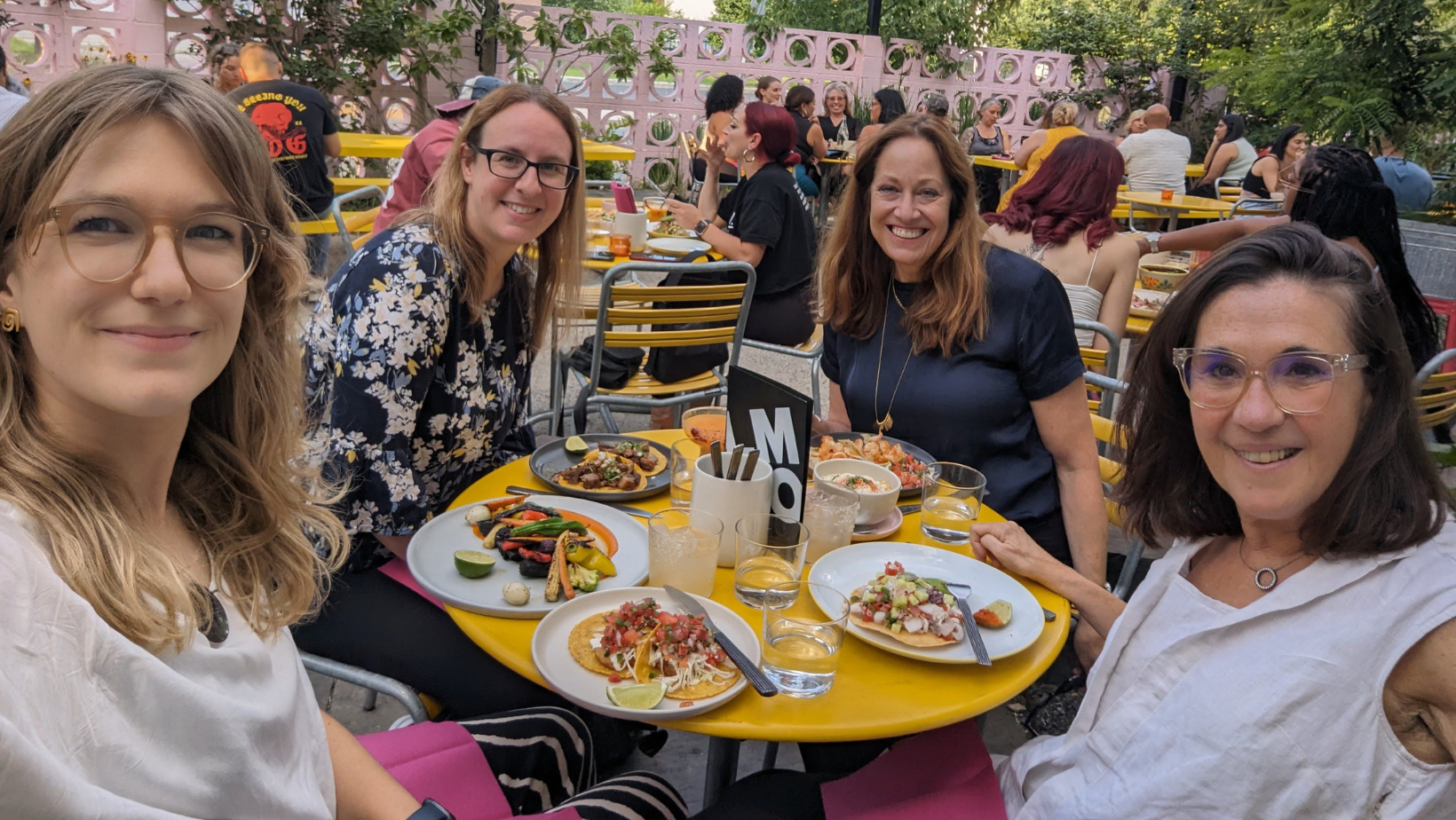Aphasia, a communication disorder which affects how we understand and use language, affects millions of individuals worldwide, with around one in three people experiencing some degree of aphasia following a stroke. The impact of aphasia on quality of life can be devastating, and the need for innovative, evidence-based and effective therapies is growing. An ongoing collaboration between the laboratories of University College London Professor of Psychology and MRRI Scientist in Residence Gabriella Vigliocco, PhD, and MRRI Institute Scientist Laurel Buxbaum, PsyD, has been exploring how linguistic communication that is enhanced with gestures and other visual cues may benefit the language comprehension and production of people with aphasia (PWA). One ongoing project being run at both sites employs a unique paradigm with interactive card games to capture ‘real life’ communication of PWA. In August, UCL PhD student Isobel Chick, MSc, and Professor Vigliocco visited MRRI’s Cognition and Action Laboratory to discuss the latest updates from the study with Dr. Buxbaum and postdoctoral fellow Amy Lebkuecher, PhD.
The core focus of this collaborative project is to investigate how PWA understand and use hand gestures in everyday communication, and whether this varies in predictable ways based on individual differences. These individual differences may include variations in semantic processing abilities or the ability to plan and execute gestures. Using this information, the researchers ultimately aim to develop personalized treatment pathways that can enhance speech production and auditory comprehension in PWA. By pooling multinational UK and US datasets, the researchers hope that their findings will be relevant to a wider population of PWA.
Looking ahead, the next steps for the project involve finalizing analyses and developing a structured aphasia treatment trial for PWA starting in 2024. Initial findings from the study will be presented at the Academy of Aphasia and Society for the Neurobiology of Language conferences this fall, providing a platform for sharing insights and garnering feedback from the wider scientific community. Ms. Chick shared her excitement about the collaboration, stating, “It was really wonderful to be able to meet our MRRI colleagues in person and generate new ideas for our project. Active collaboration with international colleagues gives us access to such a rich and varied dataset, and I’m excited to see how our work together develops.”
Aphasia research is a global endeavor, and international collaborations such as this are essential for making significant strides in understanding and treating this communication disorder. With the ongoing relationship between UCL and MRRI, the collaboration will continue well into the future.




9 comment on “Language Research Collaborations Between MRRI and University College London Continue to Grow”